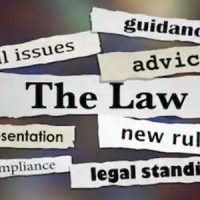The U.S. Supreme Court Ruling In Vega And Its Impact For Floridians

A person’s “right to remain silent” has been a crucial and well-known element of criminal arrests since the Miranda v. Arizona Supreme Court ruling in the 1960s. The Miranda ruling and its place among a defendant’s Constitutional rights was considered as part of a recent Supreme Court decision in Vega v. Tekoh. While the rules established in Miranda were not affected, some critics including the ACLU feel the decision chipped away at the heart of the rights protected by Miranda.
The original Miranda ruling aimed to protect rights against self incrimination guaranteed by the Fifth Amendment. Under Miranda, people under arrest or in a custodial interrogation setting must be instructed that:
- They have the right to remain silent;
- Anything they say can be used against them in a court of law;
- They have the right to consult with an attorney;
- If they seek but cannot afford an attorney, one will be appointed for them.
Aside from standard questions such as those regarding a person’s name, address, and date of birth, law enforcement officers cannot obtain confessions or other details regarding an alleged crime without a person being read and waiving their Miranda rights. Self-incriminating information obtained prior to a Miranda reading can be excluded from evidence at a court trial. This rule recognizes the inherent imbalance of power between police and suspects.
The Supreme Court’s Holding in Vega v. Tekoh in June 2022
The Vega v. Tekoh case involved a sheriff’s deputy, Carlos Vega, and a suspect, Terence Tekoh. Deputy Vega interviewed Mr. Tekoh at his place of employment – eventually obtaining a confessional statement that led to criminal charges of sexual abuse against him. Eventually, Tekoh filed a Federal lawsuit against the deputy under 42 U.S.C. Sec. 1983, which permits civil lawsuits against police officers for deprivations of “any rights, privileges, or immunities secured by the Constitution and laws.”
The Supreme Court in Vega evaluated whether a Miranda violation – in and of itself – was a direct violation of the Constitution or law. The majority of the Supreme Court ruled it is not. The ruling held that a lawsuit for civil damages under Section 1983 could not be based on a Miranda violation alone. In its holding, the Supreme Court found that while Miranda sets out an important rule, Miranda warnings are not a right guaranteed under the Constitution or Federal law.
What Does the Vega Holding Mean for Florida Criminal Defendants?
The Supreme Court, for now, did not change the requirement that a law enforcement officer is required to advise a suspect of Miranda rights before interrogation in a custodial situation. If a police interrogation proceeds without a suspect being read their Miranda rights in a timely fashion, confessional statements during the process can potentially be withheld from use at trial and subject to a Motion to Suppress Evidence. Law enforcement officers, meanwhile, cannot relax their standards simply because a Miranda violation might not subject them to a civil lawsuit by the defendant.
The main takeaway for defendants is that they cannot seek redress through a Federal Section 1983 lawsuit if an officer obtains a confession without following Miranda protocols. Since police are generally protected from civil lawsuits through governmental immunity, Sec. 1983 civil rights lawsuits have long been the only means of suing an officer or agency that violated a person’s rights. Since the Vega ruling held that Miranda rights are not a civil right guaranteed under the Constitution, defendants have one less tool available to protect their Fifth Amendment rights.
However, it is important for those charged with a crime to remember that Miranda rules still apply. Potentially incriminating statements made under pressure from law enforcement are still subject to scrutiny, and can be barred from trial under certain conditions.
The Orlando Criminal Defense Attorneys at Joshi Law Firm, PA Will Fight For Your Legal and Constitutional Rights
Recent Supreme Court decisions such as the one made in Vega v. Tekoh have left many wondering just where their rights stand. Critics argue that Miranda rights have been weakened by the recent ruling, but defendants still have important Constitutional protections. To learn more about how these rights can impact your case, contact our Orlando criminal lawyers at Joshi Law Firm today to discuss the facts and strategies available to you. Call our experienced legal team today at 407-661-1109, or complete our online case questionnaire at your convenience 24 hours a day, 7 days a week.
Source:
uscourts.gov/educational-resources/educational-activities/facts-and-case-summary-miranda-v-arizona

